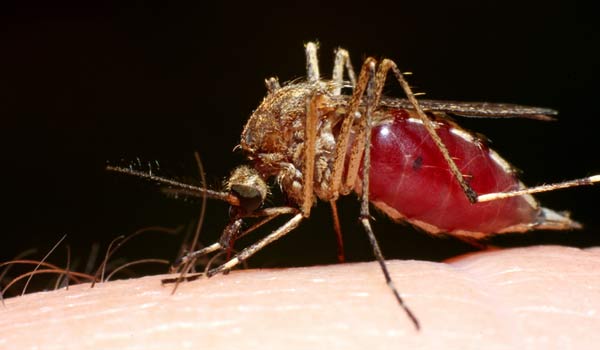West Nile Outbreaks Likely to Be Unpredictable for Decades

This year's outbreak of West Nile virus is one of the biggest in U.S. history, and what next year will hold is anyone's guess, experts say.
In fact, the disease is likely to remain unpredictable for decades to come, said Dr. Lyle Petersen and Dr. Marc Fischer of the Centers for Disease Control and Prevention, who wrote about West Nile in this week's issue of the New England Journal of Medicine.
As of this week, nearly 4,000 cases of West Nile virus have been reported, the CDC says. While that's about the same as the numbers reported in 2002 and 2006, it's about six times the number reported in 2011.
"Until this year’s resurgence, many experts questioned whether West Nile virus would remain a substantial public health concern," Petersen and Fischer wrote. But our knowledge of viruses similar to West Nile suggests that it "will cause sporadic cases and unpredictable outbreaks big and small for decades to come," the researchers said.
West Nile virus is carried by birds, and spreads to people by mosquitoes. Just how many cases of West Nile are seen in a given year depends on a number of factors, including the number of birds and mosquitoes carrying the disease, the location of the carriers and how fast the virus replicates in mosquitoes, the researchers said. Many of these factors are influenced in some way by the weather, but West Nile virus outbreaks are not consistently tied to heat waves, they said.
There's also some randomness in the disease's spread, meaning that even under similar conditions, there could be a variety of outcomes just by chance, the researchers said.
"Thus, generating long-range predictions regarding West Nile virus outbreaks will be a formidable, if not impossible, task," the researchers said.
Sign up for the Live Science daily newsletter now
Get the world’s most fascinating discoveries delivered straight to your inbox.
There are no treatments for West Nile, and no vaccine against the disease exits. The sporadic and widespread nature of the disease makes it difficult for researchers to conduct trials that would include enough people to prove a treatment is effective, the researchers said.
"New paradigms are needed for bringing novel therapeutics and vaccines for emerging diseases such as West Nile virus to market in a timely and cost-efficient manner," Petersen and Fischer said.
The researchers noted that sporadic cases of a similar disease, St. Louis encephalitis, have been reported in the United States for 80 years. "Clearly, a long term perspective is necessary," they said.
Pass it on: Outbreaks of West Nile have been unpredictable, and will likely remain so for decades to come.
This story was provided by MyHealthNewsDaily, a sister site to LiveScience. Follow MyHealthNewsDaily @MyHealth_MHND. We're also on Facebook & Google+.










